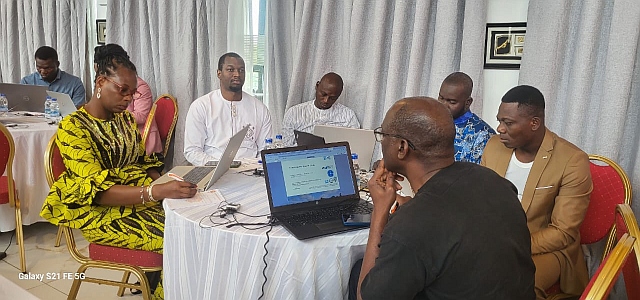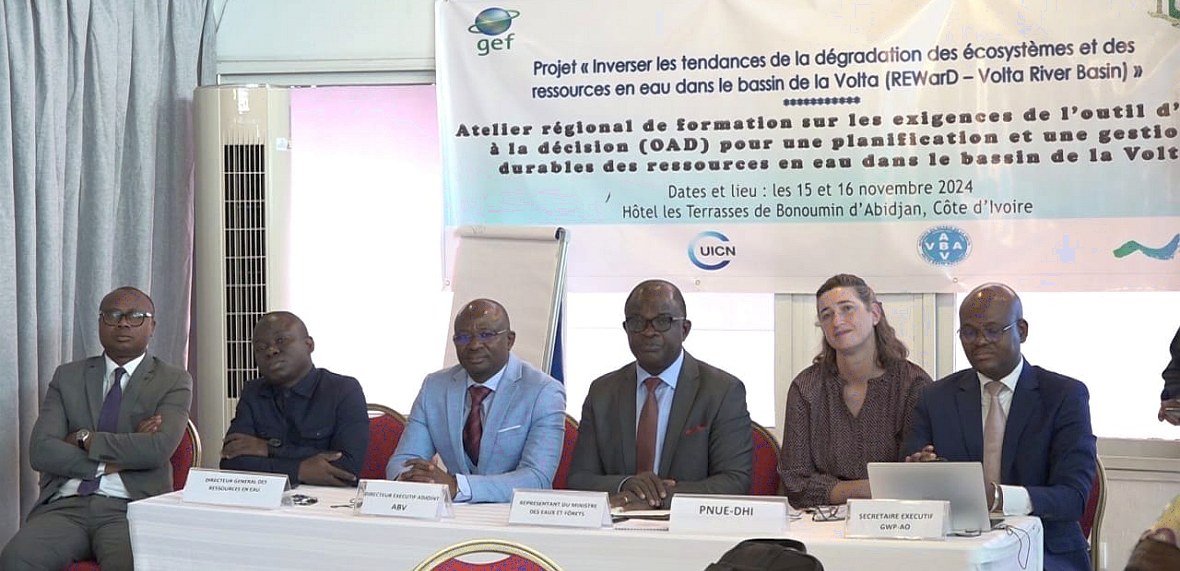The regional workshop is part of the technical assistance provided by the United Nations Environment Programme's Centre for Water and Environment (DHI) for the implementation of the ‘Reversing the Trends of Ecosystem and Water Resources Degradation in the Volta Basin (REWarD - Volta River Basin)’ project. The project, financed by the Global Environment Facility (GEF), aims to set up a Decision Support System (DSS) for water resource planning and management, a Drought Early Warning System (DEWS) and capacity-building for stakeholders in the Volta Basin. It is being implemented by the United Nations Environment Programme (UNEP) and the International Union for Conservation of Nature (IUCN).
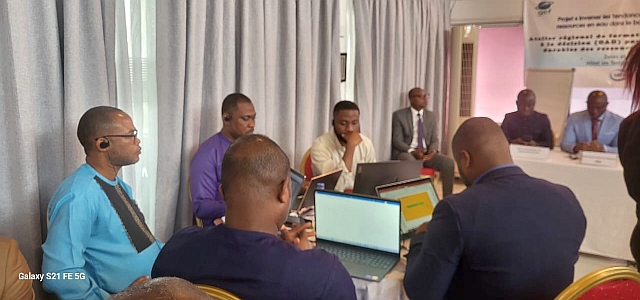 The opening ceremony of the workshop was chaired by Mr Antoine KOFFI DJAA, Deputy Director of the Cabinet of the Ministry of Water and Forests of the Republic of Côte d'Ivoire, in the presence of the Deputy Executive Director of ABV, Mr Dibi MILLOGO, Mr Armand HOUANYE, Executive Secretary of GWP- WA, and Mr Wonnan Eugène YEO, Director General of Water Resources of the Republic of Côte d'Ivoire.
The opening ceremony of the workshop was chaired by Mr Antoine KOFFI DJAA, Deputy Director of the Cabinet of the Ministry of Water and Forests of the Republic of Côte d'Ivoire, in the presence of the Deputy Executive Director of ABV, Mr Dibi MILLOGO, Mr Armand HOUANYE, Executive Secretary of GWP- WA, and Mr Wonnan Eugène YEO, Director General of Water Resources of the Republic of Côte d'Ivoire.
The workshop was attended by around thirty face-to-face participants and fifteen online participants from the Volta Basin Observatory, the technical departments responsible for water, hydrology, meteorology, agriculture, the environment, international cooperation, etc. from the six countries of the Volta Basin. Discussions focused on various technical and organisational aspects, including the use of data visualisation tools, database management, and the importance of collecting and analysing hydrological, climatic and water use data.
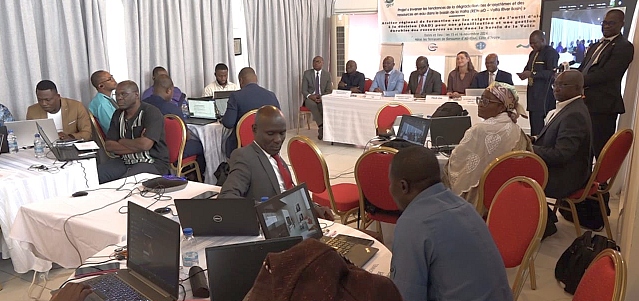 Overall, the workshop provided an opportunity to define and discuss technical requirements and user needs, and to build the capacity of participants with a view to their effective participation in the development and implementation of the DST as part of the REWarD project. It addressed the design of the knowledge base, the drought early warning systems (DEWS), and the water resources planning tool.
Overall, the workshop provided an opportunity to define and discuss technical requirements and user needs, and to build the capacity of participants with a view to their effective participation in the development and implementation of the DST as part of the REWarD project. It addressed the design of the knowledge base, the drought early warning systems (DEWS), and the water resources planning tool.
The participants agreed on the content and functionalities of the tools based on the expectations of the beneficiaries and users to ensure that the future DST meets their expectations.
Knowledge for a clear understanding of the key components of the DST, including the knowledge base, the drought early warning system and the water resources planning tool were presented.
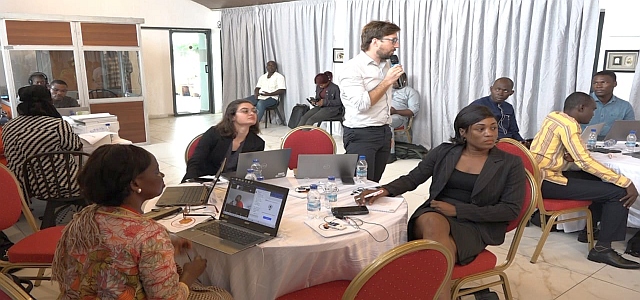 Participants were reinforced on sharing water resources information and knowledge using an initial version of the DST knowledge base web interface, including station data (e.g. gauging stations), static data (e.g. reservoir capacity) and the latest operational data from Earth observation datasets (e.g. satellite rainfall).
Participants were reinforced on sharing water resources information and knowledge using an initial version of the DST knowledge base web interface, including station data (e.g. gauging stations), static data (e.g. reservoir capacity) and the latest operational data from Earth observation datasets (e.g. satellite rainfall).
The workshop provided an opportunity to discuss the data required for the development of the DST, as well as the difficulties in accessing meteorological data, despite the fact that the Volta Basin Water Charter requires countries to share their data for the benefit of the people of the Volta Basin.
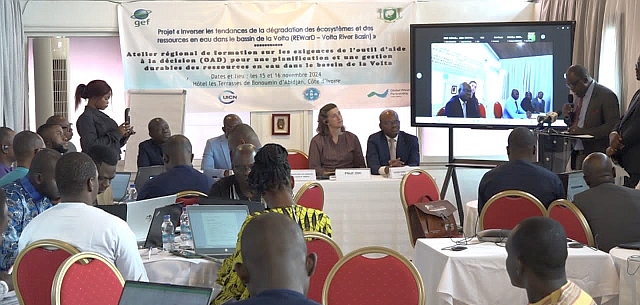 In terms of next steps, all countries must send their comments on the choice of hydrological model within one week. The DHI Consultant should develop the water resources model for the planning tool by June 2025, organise a workshop to define the indicators, scenarios and case studies for the planning tool, work on a sustainability plan for the decision tool and update the existing data inventory report with the new information provided at the workshop. It should plan to provide training on the use and operation of the drought early warning system once developed and develop user manuals in English and French for the decision tool.
In terms of next steps, all countries must send their comments on the choice of hydrological model within one week. The DHI Consultant should develop the water resources model for the planning tool by June 2025, organise a workshop to define the indicators, scenarios and case studies for the planning tool, work on a sustainability plan for the decision tool and update the existing data inventory report with the new information provided at the workshop. It should plan to provide training on the use and operation of the drought early warning system once developed and develop user manuals in English and French for the decision tool.
